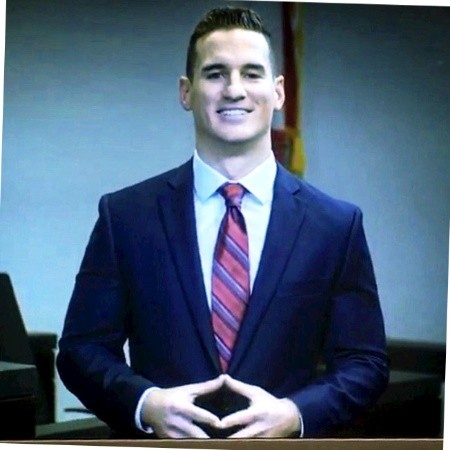
PR EDA : 572-335-4994


Attorneys general are the chief legal officers of their states. They advise and represent legislators and agencies, acting as “People’s Lawyer” for citizens in those jurisdictions. To learn more about their responsibilities and powers, listen to The People’s Lawyer podcast or locate your state’s attorney general’s office below.
The attorney general is the chief legal officer of a state, providing legal counsel and representation to government agencies as well as representing public interests in courts. Appointed by the governor, this position includes employing prosecutors, attorneys, forensic accountants, legal assistants and support staff to guarantee that laws are upheld fairly and efficiently by government entities.
The office collaborates with a range of clients, such as the Governor, Legislature and various state agencies, boards and commissions. Additionally, he and his staff collaborate with criminal justice system, crime prevention services and local law enforcement organizations in an effort to combat violence and foster successful, secure communities.
For instance, the office has launched a special initiative to combat child exploitation or pornography, computer crimes, organized criminal enterprises and identity theft. Furthermore, an investigative team analyzes violent crimes to identify and target priority targets for investigations and prosecutions.
In addition to the executive office in Albany, the attorney general’s staff is located throughout New York State in thirteen Regional Offices. Here, attorneys general provide a range of defensive, regulatory and affirmative justice services in every corner of the state. Each Regional Office is led by an attorney-in-charge with Assistant Attorneys General representing them in court of claims or federal court actions originating in their regions. Furthermore, these staff members address important social and economic justice issues within communities by investigating and taking action to safeguard consumers, civil rights, charitable donations and workers’ rights.
Attorneys general serve as the chief legal officers of their states and territories, representing and advising legislators and agencies alike as the “People’s Lawyer.” In addition to their statutory responsibilities, these top lawyers also have many other duties such as upholding consumer protections, antitrust law enforcement, safeguarding vulnerable populations, investigation and prosecution of criminal offenses.
The Office of the Attorney General employs over 1,800 personnel, from attorneys and forensic accountants to legal assistants and scientists in offices throughout New York State. Our locations include Albany, Buffalo, Rochester and Syracuse. If you have any queries or remarks about our services or department in general, we would love to hear from you. To make communication easier for you, please fill out the form below and one of our representatives will respond as quickly as possible.
Our office is proud to be part of the national conversation about sexual violence and its roots in unequal power relationships. We are dedicated to combatting this epidemic and safeguarding communities from its many manifestations.
We hope you find this page to be informative and please feel free to spread the word about us with friends and colleagues. If you have any queries about our office or what we do, please reach out to our Constituent Services department for assistance.
The attorney general’s office is the state’s legal department, representing citizens and government alike. Additionally, it offers legal services to agencies, boards, commissions, colleges and universities throughout Virginia. Furthermore, their work includes anticipating potential public safety threats while encouraging successful communities that are secure.
The Attorney General’s office is dedicated to safeguarding our citizens from discrimination, guaranteeing all citizens access their constitutional rights and advocating for consumer protections. Furthermore, it works hard to safeguard our economy, preserve the environment and safeguard both human health and that of animals and plants alike.
The Attorney General’s office welcomes your comments, questions and issues. Please provide as much detail in your email correspondence so that we can more effectively address your needs. We do not provide private legal advice or representation, but we may be able to assist you through informal mediation or referral to other government agencies. Please be aware that all correspondence submitted to the Attorney General’s office is subject to disclosure under the Connecticut Public Records Act. Furthermore, the Attorney General’s office is not a law firm and cannot represent individuals in court to bring or defend against legal claims. If you require legal counsel, contact a lawyer in your area for assistance. To locate attorneys practicing law in Connecticut, you can check out the Attorney General’s website by clicking “Find a Lawyer,” or contact your local bar association for advice about obtaining a license to practice law. If you do not already have access to legal counsel, many legal aid organizations exist throughout the state that can assist.
The attorney general is the chief legal officer in their jurisdiction and provides advice to state agencies, legislatures and the public on a wide range of legal matters. They are commonly known as “people’s lawyers” due to their role as public face of their state or territory. In addition to prosecuting criminals, attorneys general also work towards protecting children online, upholding election laws and investigating cybercrime.
The office’s most impressive accomplishment is a new website that provides parents, educators and students with tips and resources on keeping their children safe. It also has several other high-tech features like the Attorney General’s Medicaid Fraud Control Unit which investigates Medicaid fraud and abuse, assists local law enforcement with prosecutions and digital forensics investigations. Finally, there’s the department’s sexual violence prevention program – the first of its kind to focus on root causes rather than simply stopping the bleeding in the moment.